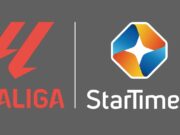Nana kweku ofori Atta
Security consultant
In the realm of employment, the sanctity of documents such as appointment letters holds paramount importance. These documents not only signify the beginning of a professional journey but also serve as legal proof of one’s employment status. However, amidst the complexities of modern bureaucracy, questions regarding the authenticity of such documents often arise, prompting the need for a reliable system of verification.
One crucial aspect of ensuring the legitimacy of employment documentation is the presence of an accredited seal. In Ghana, the issuance of state seals or corporate seals by accredited institutions plays a pivotal role in authenticating documents, thereby lending them credibility before a court of law. These seals serve as tangible evidence of the document’s validity and the authority behind it.
But where does one acquire such seals, and how are they regulated? The Ghanaian landscape boasts institutions empowered to issue these seals, ensuring they adhere to stringent standards of authenticity and reliability. These accredited bodies not only validate the legitimacy of documents but also provide a layer of security and trust in the employment process.
Employment letters, being foundational documents in the employer-employee relationship, hold a special significance in this context. Beyond merely outlining salary details, they serve as a contractual agreement between parties, laying out rights, responsibilities, and expectations. As such, the inclusion of an accredited seal not only enhances their legal standing but also reinforces the trustworthiness of the employment offer.
In light of these considerations, the role of regulatory bodies like the Labor Commission becomes crucial. Charged with protecting the rights of workers, they have a responsibility to ensure that employment documentation meets established standards of authenticity and reliability. By endorsing the use of accredited seals, they contribute to a more transparent and equitable employment environment, where the interests of both employers and employees are safeguarded.
In conclusion, the presence of accredited seals on employment documents is not merely symbolic but serves as a tangible assurance of their legitimacy. In Ghana, where the rule of law and due process are paramount, the use of such seals reinforces the credibility of employment agreements and strengthens the foundation of the labor market. As stakeholders continue to advocate for transparency and fairness in employment practices, the role of accredited seals remains indispensable in upholding the integrity of the system.































